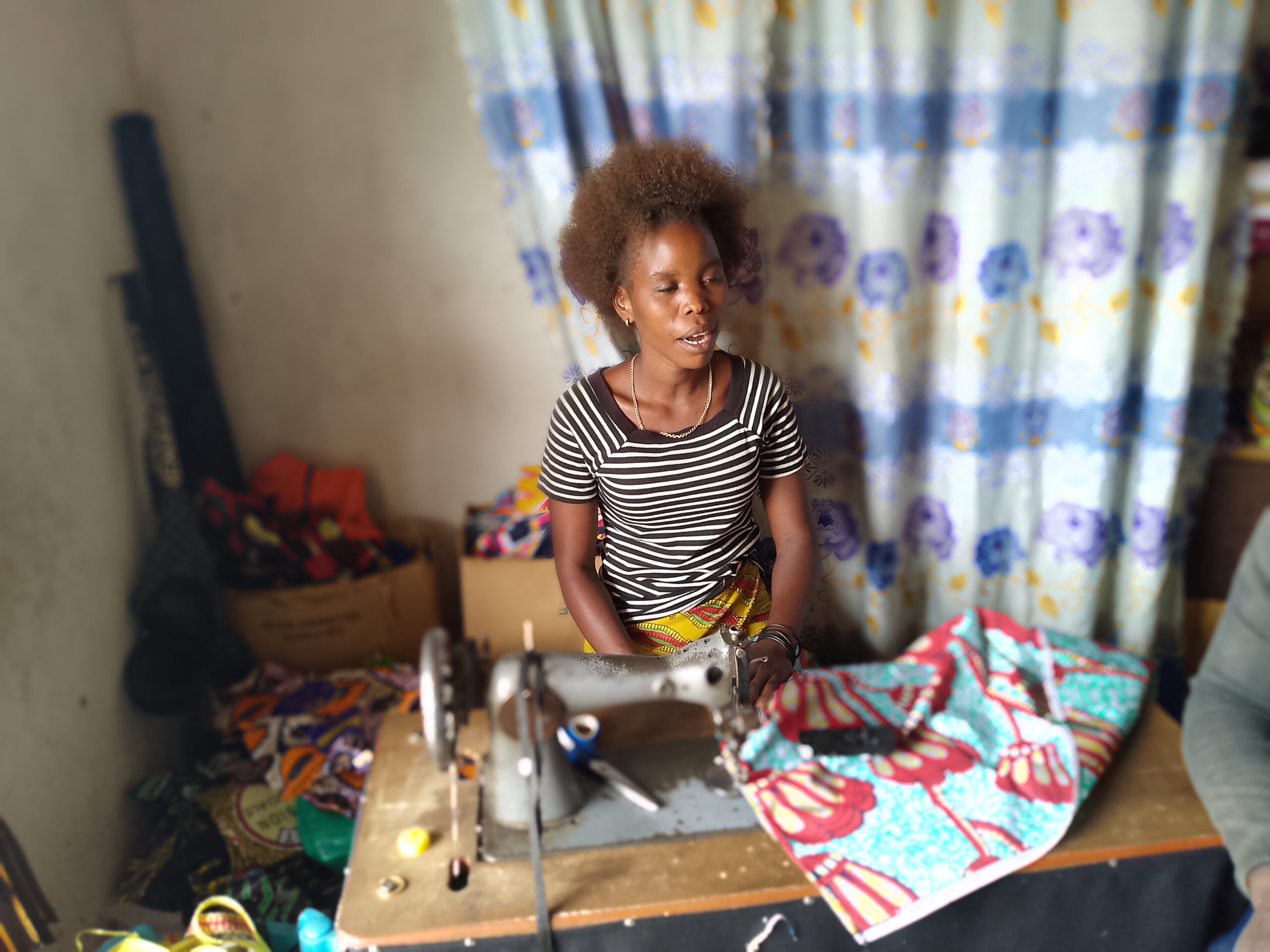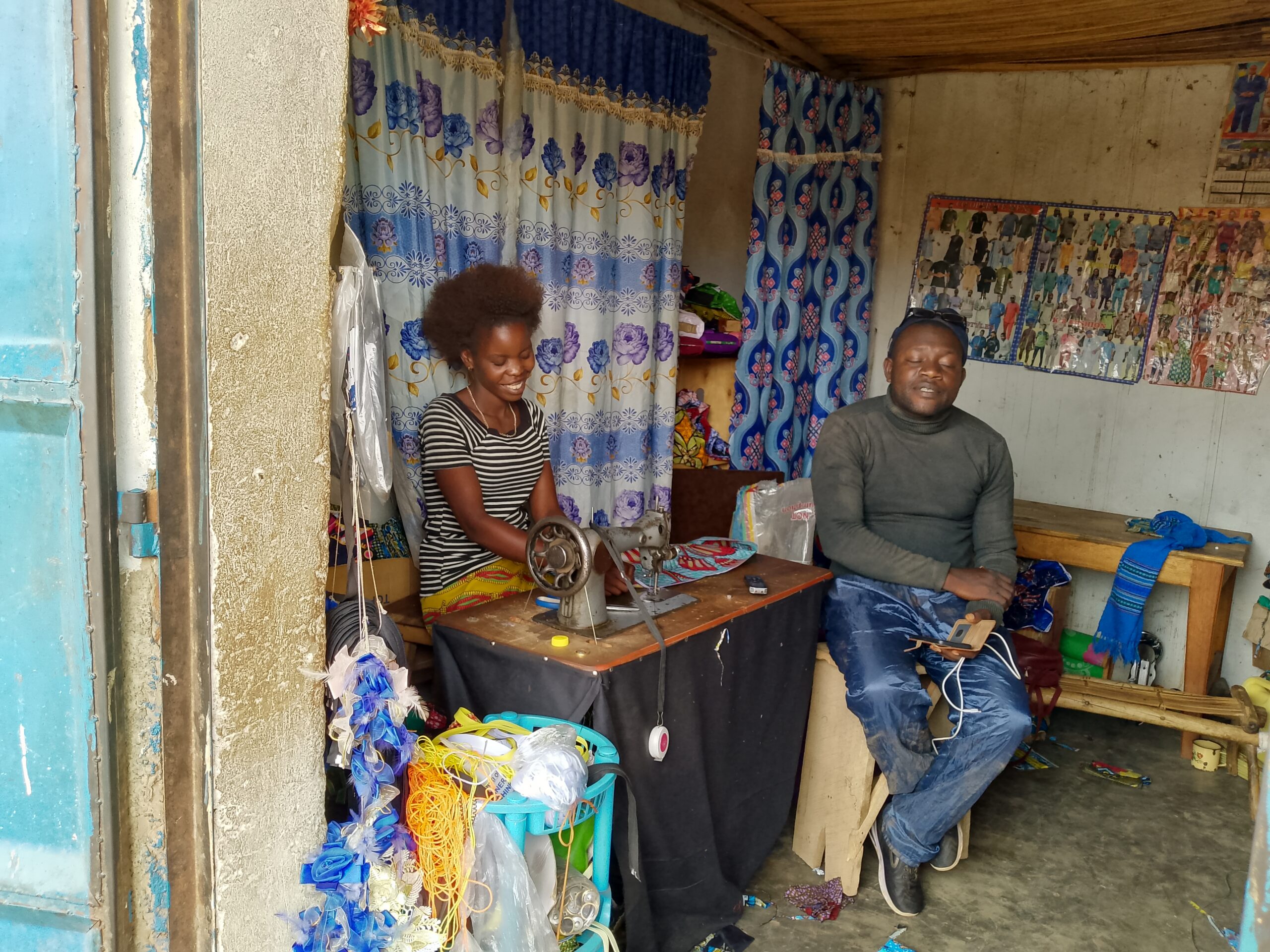Participants in a training and awareness workshop, Democratic Republic of Congo.
“My wife, Brigite, took a cutting and sewing course at the training center. I had doubts at first, but then I saw the positive changes and I understood the importance of the program for women in the community. Now, we’re both reaping the benefits.”
Brigite and Orionzi live in the Democratic Republic of the Congo, in the same small, rural community where they both grew up.
The married couple have known each other most of their lives and been together since they were teenagers. After their first child was born, they lived with Orionzi’s parents for 3 years. During that time, Brigite gave birth to their second child. She and Orionzi dreamed of moving out.
When they finally did, Brigite stayed home with the children while Orionzi worked as a small-scale farmer. This arrangement provided them with a reliable food source, and Orionzi could sell the surplus at market.
“Instead of waiting for my husband to provide for my every need, I decided to learn a professional trade.”
“Agriculture helped solve our food problems,” Brigite shared, “but other needs such as medical care and schooling for the children were lacking.”
Around this time, Episcopal Relief & Development and the Anglican Diocese of Aru launched the Program to Prevent and Respond to Violence Against Women and Girls (PREVIFE). As part of the program, PREVIFE teams opened a vocational training center for young mothers. When women gain financial independence, they can exercise greater control over shaping their own lives and futures.
“Instead of waiting for my husband to provide for my every need,” Brigite said, “I decided to learn a professional trade.”
She enrolled in a 6-month course to earn a sewing certificate. After graduating, she worked in a local sewing shop before going into business for herself.

“I set up a sewing workshop in my community. People bring clothes to be repaired and others ask me to sew uniforms for their children. This generates enough money to cover our household needs. I also bought a mill to help the community grind grain in exchange for money.”
Brigite saved enough to invest in the growth of her business.
“I bought two good quality sewing machines,” she said, “plus a specialized machine for drawing on garments. I’ve also purchased a plot of land to build a second workshop.”
As part of the program, Brigite completed a course to become a “community mobilizer.” In this role, she educates people in her community about violence against women and girls. A trusted confidant, Brigite is seen as a resource for young mothers in the community and her sewing workshops are known as safe, welcoming spaces to discuss sensitive topics.
“I’m helping girl-mothers become self-sufficient,” she said, “and I’m raising awareness among young people about violence prevention in my community.”
Through her work, Brigite is making a difference in the lives of people throughout her community and helping change traditional attitudes and behaviors that harm women and girls.

“I’ve learned a lot,” her husband Orionzi said. “I advise younger men in the community. For those who are married, I tell them to support their wives. Brigite talks to me about violence against women and girls. I tell other men to think about that in their own homes, too.”
Brigite and Orionzi’s family has grown to include three children. Brigite is the family’s primary breadwinner and the couple shares parenting responsibilities.
“We’re doing well,” Brigite said. “I look after my workshop, and that helps us in our home. My husband looks after the field properly, and that also supports us in our home. We live in love.”
Our Results in Numbers
-
762,000
womenparticipated in program activities
-
92
youth leadersengaged in violence prevention training
-
1,500
survivorsreceived care and support
-
2,073
womenparticipated in economic activities
A Note from our Director
Nicole Hosein, Director, Violence Prevention, Protection and Resilience shares how our programs are helping communities write new stories of dignity and hope.